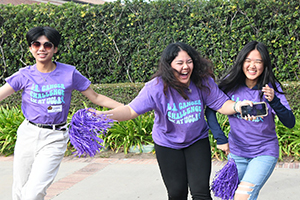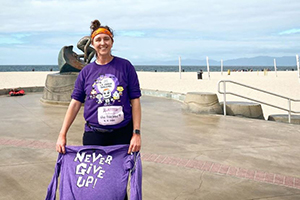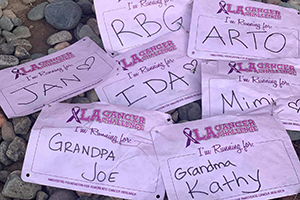Since 1998, the Hirshberg Foundation has proudly partnered with CancerCare, a national nonprofit organization that provides free, professional support services to anyone affected by cancer. Together, we work to address the often-overlooked challenges that come with a cancer diagnosis, especially for patients facing financial hardship. Through this long-standing collaboration, the Foundation provides bi-annual grants that enable CancerCare to offer one-time financial assistance to low-income pancreatic cancer patients. In addition to these grants, patients have access to CancerCare’s full range of emotional, educational, and practical support services, creating a comprehensive safety net during one of life’s most difficult journeys.
The Financial Burden of Cancer Treatment For Low-Income Households
A pancreatic cancer diagnosis can turn a family’s world upside down, not only emotionally but financially. Even with insurance, the cost of treatment, transportation, and time away from work can become overwhelming. CancerCare shares that financial stress continues to be a major barrier to cancer treatment adherence. What you need to know: many patients have made treatment trade-offs due to finances; 1 in 5 delayed cancer treatment due to cost; and 1 in 20 discontinued treatments altogether.
The “financial toxicity” of cancer takes a toll on the quality of life and survival rates. That’s why programs like our CancerCare grant are so critical—they not only ease financial stress but also help patients stay on track with life-saving treatment. According to MD Anderson, the financial strain can extend well beyond active treatment:
- Patients who stop working may lose employer-provided health and life insurance
- The out-of-pocket expenses not covered by insurance often lead to lasting debt
- Insurance may not cover clinical trial treatments
Stories Of Strength: Real Patients, Real Impact
With the help of the Hirshberg Foundation’s grant, CancerCare was able to offer more than just financial assistance – they offered reassurance, connection, and tangible support to individuals facing extraordinary challenges. Thanks to the unwavering support of our community, the Hirshberg Foundation continues to meet patients where they are, offering comfort, care, and crucial financial relief when it’s needed most.
“The Hirshberg Foundation for Pancreatic Cancer Research and CancerCare have partnered since 1998, providing over $1 million to assist pancreatic cancer patients. This funding helps with essential needs and patients know they have not only CancerCare’s various services but also the Hirshberg Foundation providing crucial support. This collaboration illustrates the power of shared dedication in helping and providing hope in the fight against pancreatic cancer,” shares Vilmarie Rodriguez, Vice President of Patient Assistance and Community Engagement, CancerCare.
Together with CancerCare, we’re not just helping patients navigate cancer, we’re reminding them they’re not alone. Here are just a few of the individuals whose lives were touched by this program:
– 61-year-old woman in New York
– 70-year-old man in Kentucky
– 60-year-old woman in Alabama
— 53-year-old man in Michigan
2024 Program Impact
Thanks to our generous donors and the tireless support of our community, we brought much-needed relief to patients across the country and served 126 low-income pancreatic cancer patients in 2024. This grant continues to ease the financial strain that often accompanies a pancreatic cancer diagnosis, helping patients meet basic needs and focus on healing. CancerCare was once again able to serve a diverse population of individuals affected by this disease.
Last year, the program supported patients in 31 states, with the highest number of recipients in Florida, New York, Georgia, North Carolina, and New Jersey. The majority of patients served were between the ages of 41-64 (78%) and 65 and older (45%). Grants were distributed across a wide range of communities, with 38% of recipients identifying as African American, 34% as White, and 15.5% as Hispanic.
Transportation assistance remained the most urgent need for clients, with 50% of grant funds used to cover the cost of traveling to and from treatment. Co-payments and medical expenses followed, accounting for 28% of the distributed funds. The remaining financial assistance grants were applied to home care services (22%) and other essential needs to help alleviate the burden of treatment and daily living.
Our CancerCare Grant
To date, the Hirshberg Foundation has provided nearly $1.3 million for this patient program, which offers limited financial assistance associated with transportation to and from treatment, pain medication, childcare, home care, and beyond. Funds are provided to low-income patients, for whom it has been a vital resource over the years. Patients and families can learn more about eligibility and program information today.
CancerCare also offers a wealth of other resources free of charge including support groups, educational workshops, co-payment assistance, and case management. Counseling is available in English and Spanish and centers on the emotional and practical challenges that arise from cancer.
Patients and families are not alone in this journey. We are here to help guide you through the initial steps of educating yourself and your family about this disease.
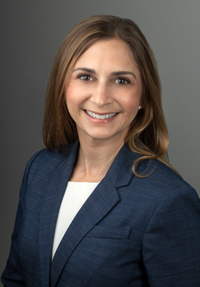 Andrea Bullock, MD, MPH, received a 2011
Andrea Bullock, MD, MPH, received a 2011 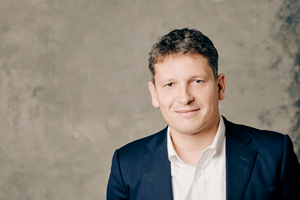 Ken Herrmann, MD, MBA, is a global leader in oncologic nuclear medicine with a career dedicated to advancing theranostics, an innovative field that combines diagnostics with targeted therapies.
Ken Herrmann, MD, MBA, is a global leader in oncologic nuclear medicine with a career dedicated to advancing theranostics, an innovative field that combines diagnostics with targeted therapies.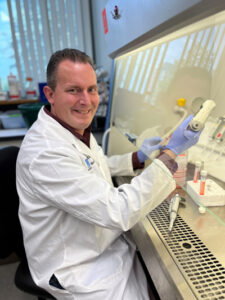 Dr. Ethan Abel, a 2021 Hirshberg Foundation
Dr. Ethan Abel, a 2021 Hirshberg Foundation 